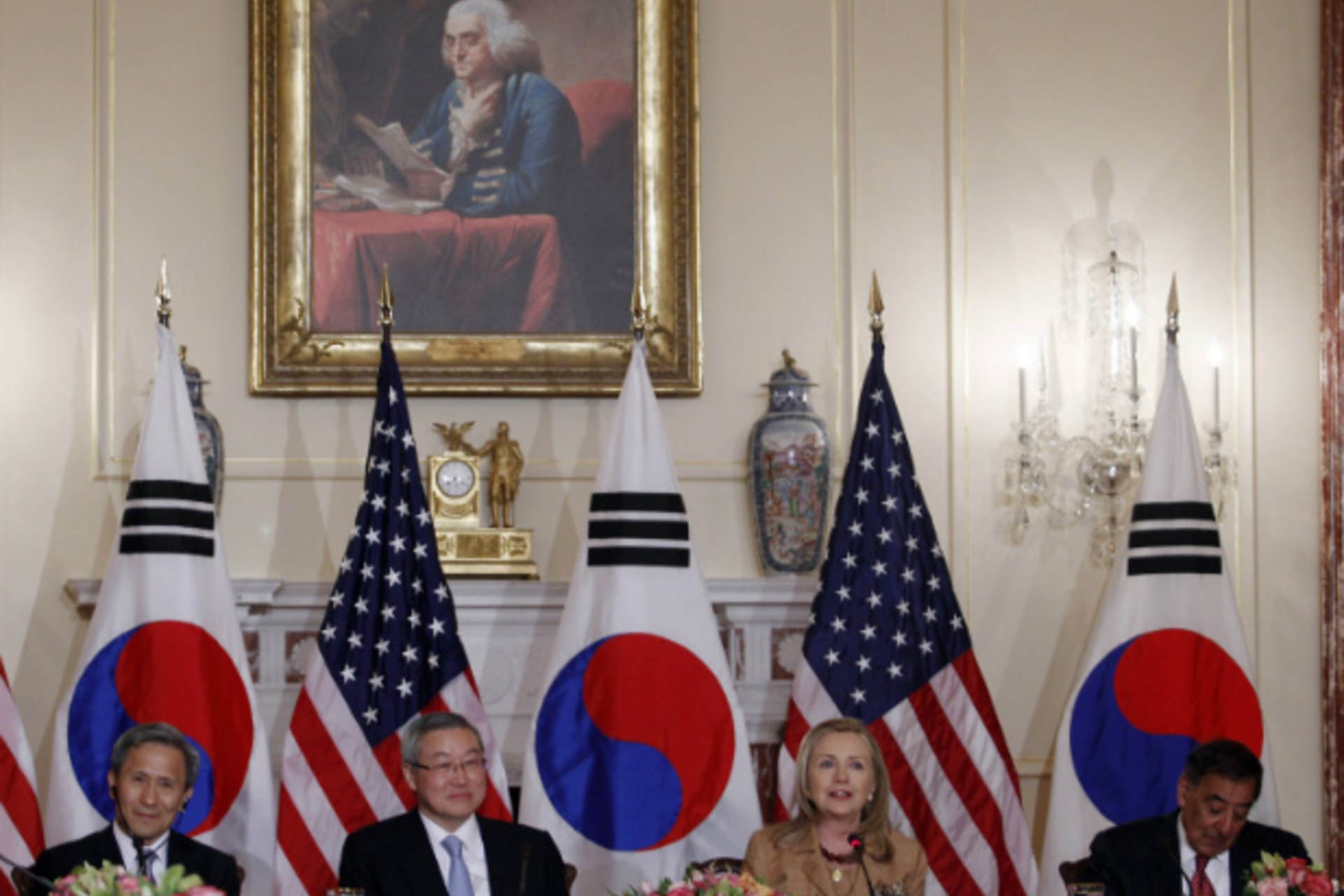South Korean Public Opinion and the U.S.-ROK Alliance

By experts and staff
- Published
By
- Scott A. SnyderSenior Fellow for Korea Studies and Director of the Program on U.S.-Korea Policy
The Korea Economic Institute of America co-hosted an event with the Chicago Council on Global Affairs and the Asan Institute for Policy Studies yesterday at which I presented my analysis of Chicago Council results of its biennial poll of American public attitudes toward South Korea. The Asan Institute’s Dr. Kim Ji-yoon gave a parallel presentation of South Korean attitudes toward the alliance based on results from a survey of Korean respondents completed last week. Both presentations are available here, but I also want to share my takeaways from Dr. Kim’s data and its implications for the U.S.-ROK alliance going forward.
First, the Asan poll shows strong support for the U.S.-ROK security alliance in the 80-90 percent range. This is a very strong level of support, in contrast to the months leading up to South Korea’s 2002 presidential elections, when South Korean support for the alliance dipped into the 40 percent range as a result of controversy over the accidental death of two schoolgirls that involved U.S. forces in Korea, which led to an anti-American candlelight demonstrations in central Seoul. Why the shift? While the majority of South Koreans clearly view China’s rise as an economic opportunity, three-quarters of South Koreans view China’s growing military power as a threat. The alliance with the United States is South Korea’s best hedge against this threat.
Second, while South Koreans currently view the United States as the most influential country in the world, they widely expect that China will pass the United States as the world’s most powerful country within the next ten years, while American survey results suggest that it will take longer for China’s influence to surpass that of the United States. These conflicting results may be understandable if one considers that South Korea’s proximity to China may mean that South Korea feels China’s dominance long before China would actually surpass the United States in many measures of global power.
Third, South Korean attitudes toward Japan have turned even more negative than South Korean attitudes toward North Korea. This development in part reflects the souring of Japan-ROK ties and rise in tensions over historical and territorial issues, including the dispute over Tokdo/Takeshima. A slight uptick in perceptions of North Korea since 2010 may also reflect strengthening public support for renewed engagement with Pyongyang.
Both the North Korea issue and South Korea’s relationship with Japan are likely to be major issues on the plate of U.S.-ROK alliance managers in early 2013 following the U.S. and ROK presidential elections. Each will require careful management. The overwhelmingly positive support among South Koreans for the relationship with the United States and American positive views toward South Korea as a partner of the United States provide a strong vantage point for constructively addressing these challenges so as to prevent them from becoming a drag on the relationship.